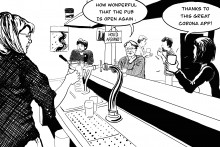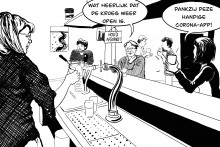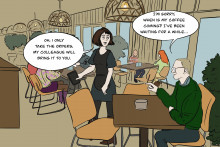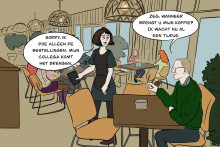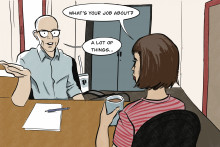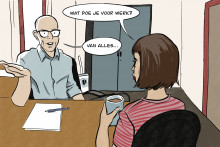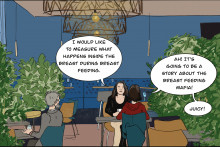While they were still living, Stefan Kuhlmann occasionally tried to explain to his parents what his job entailed. 'So I would go ahead and explain it as best I could and a year later they would ask me again, by which stage they had already forgotten.'
Perhaps it might have been easier if he just designed appliances, but Kuhlmann, however, is engaged specifically with the context in which everything takes place. A device is never just a piece of technology, packaged as a washing machine or mobile phone, that works anytime, anywhere. Since everyone has one of these things nowadays, we take its operation for granted. Wrongfully so, Kuhlman explains.
'The mobile phone works in the context of a system. This is made up of technological elements, such as phone masts. There are protocols for the digital transmission of information, as well as agreements about the formats. There is a political process, with a balance of power between, for example, telecom companies in the background. The government regulates things at a national and European level, and then there's the behaviour that we have developed over the years as users. We use mobile phones not only for making calls, but for all kinds of other things. A whole internet economy is part of this.'

Give a mobile phone to a group of jungle dwellers and they won't know what to do with it. This is something both the average person and even engineers sometimes fail to realise, Kuhlmann notes. 'In the eighteenth and nineteenth centuries, engineers were often social entrepreneurs, or political players. They developed technology not because they were experts in that field, but because they wanted to solve a social problem. Nowadays, every engineer still has the ambition of solving social problems, but enormous specialisation has taken place in the past thirty years.' This makes it easy for blind spots to appear in the social, political and cultural context in which new technology must function.
Kuhlmann and his colleagues are not only trying to understand this context, but to share it with technical experts, policy makers, users and other stakeholders in new technologies. 'We want to get an idea of which direction a technological development could go, and what the desirable and less desirable scenarios are. This always depends on choices: engineers make choices, users make choices, policymakers make choices. Where is the power, or where should the power be, when we make decisions? You can tweak all sorts of knobs and go in different directions as a result. Part of our work is to make people aware, so that we don't just follow developments waiting to see what happens. '
It is somewhat of a nuisance that we can only conduct such research online from behind a screen at this time. Nevertheless, Kuhlmann finds the times we are currently living in to be incredibly interesting. 'In many ways, we are inadvertently in the middle of an accelerated transformation. Among other things, in the use of digital technology for meetings, or for information exchange and communication in the broadest sense of the word. This includes surveillance, as is the case with corona apps. These technologies were already there, but we are now seeing an acceleration. I am pretty sure that after this crisis we won't be returning to the previous state of affairs.'



